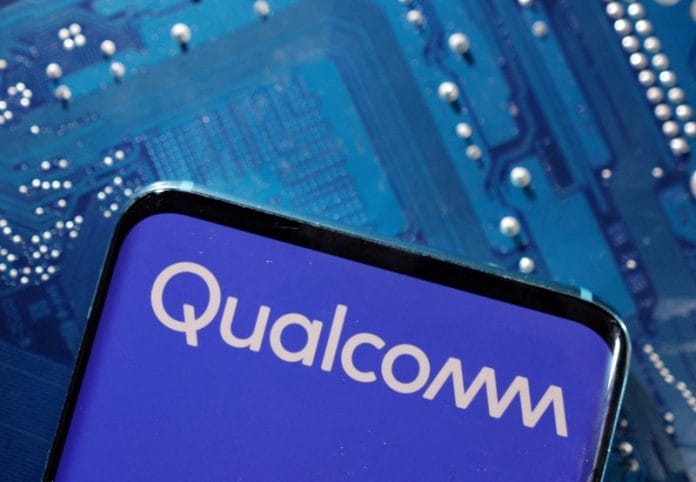By Tom Hals
(Reuters) – Lawyers for Arm Holdings and Qualcomm are set to make closing arguments on Friday in a case that could upend Qualcomm’s push into the PC market with a chip meant to rival Apple and Intel on speed.
An eight-person jury in a U.S. federal court in Delaware will determine whether Qualcomm or Nuvia, a startup Qualcomm purchased for $1.4 billion in 2021, breached a license agreement with U.K.-based Arm, which supplies intellectual property to both firms.
If Arm is victorious, the British firm could force Qualcomm to destroy the technology it purchased from Nuvia, which has become the basis of a chip released this year that Microsoft and the entire Windows PC industry had hoped would claw back market share lost to Apple.
The dispute centers on the royalties that chip companies pay on each semiconductor made using Arm’s technology. Before its acquisition by Qualcomm, Nuvia’s license agreement required it to pay far higher royalty rates than Qualcomm.
After Qualcomm bought Nuvia, it aimed to use Nuvia’s technology in its chips while paying the lower royalties due under its own agreement with Arm. Arm objected, kicking off a dispute that led Arm to sue Qualcomm in 2022.
In a trial that started Monday, Arm sought to portray Qualcomm’s moves as a first-of-its-kind flouting of standard contractual terms the British company had used successfully for decades and that would have upended its business model.
Qualcomm, by contrast, portrayed Arm as a longtime vendor whose new CEO had ambitions to reap higher royalty rates and compete against Qualcomm by starting to design its own chip.
Documents and testimony also showed that San Diego, California-based Qualcomm estimated it could eventually save $1.4 billion per year in payments to Arm by switching to Nuvia’s technology as it pushed into new markets. Its executives repeatedly testified that their plans did not violate license agreements.
The jury must determine if Qualcomm and Nuvia breached the deals and whether Arm met its obligations under the agreements.
During the trial, jurors were shown contract language that appeared to give Arm sweeping license rights to products built using its instructions, which could have implications for Arm’s agreements with other chipmakers. Qualcomm executives testified that such a reading of the language ignored that its license covered the extensive design work done by Qualcomm engineers to create almost entirely new products.
A verdict in the trial, which started on Monday and was set to last five days, could come as early as Thursday.
(Reporting by Tom Hals in Delaware and Stephen Nellis in San Francisco; Editing by Saad Sayeed)
Disclaimer: This report is auto generated from the Reuters news service. ThePrint holds no responsibility for its content.






